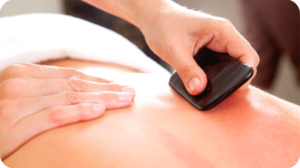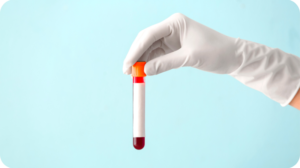Start the new year on a positive note by scheduling yearly tests to detect any health problems early, and give you peace of mind. Although age 40 may seem a bit young for some of these tests, early detection is key in treating many illnesses. Not only that, the sooner you catch a problem, the less devastating its effects—and those of any treatment—will be.

The Yearly 4
All of these tests should be done in conjunction with, and informed by, a yearly general physical performed by your primary caregiver. That professional is best suited to determine if there are reasons you shouldn’t have the tests below, or if you should have additional tests based on your particular family history or medical conditions.
- Fasting blood panel. A comprehensive blood panel is one of the most useful tools for detecting health changes. Although some blood tests do not require fasting, it’s a good idea to fast for a comprehensive blood panel. The test should include blood lipids (LDL, HDL, and total cholesterol, triglycerides, and other measures), blood sugar (to detect prediabetes and diabetes), TSH (to measure thyroid performance), iron levels (including ferritin and other factors), complete blood count (CBC, measuring white and red blood cell counts, which can indicate infections and diseases), metabolic panel (measuring levels of a number of key minerals and amino acids, and protein and enzymes that indicate liver, kidney, and heart health), and cardiac biomarkers. Learn more about these blood tests and what they measure on the website for the American Clinical Laboratory Association.
- Complete eye exam. We often need vision correction before we realize it. Although a complete eye exam will determine if you need glasses or contacts to improve your eyesight, the ophthalmologist will also perform a glaucoma test, check your vision for signs of disease such as macular degeneration, and dilate your eyes to inspect the eye structures and determine if there are any worrisome anomalies. Find out more about eye exams and eyecare issues on the American Academy of Ophthalmology’s website.
- DRE (men only). Nobody looks forward to a digital rectal exam (DRE), but it is the simplest, quickest way (about 10 seconds of discomfort) to detect changes in the prostate that may indicate disease—including cancer. This is especially important given that the vast number of prostate cancer cases could be cured if caught early enough. A DRE is your first line of defense, and a little embarrassment and discomfort might just save your life. Learn more on the Prostate Cancer Foundation’s website.
- Mammograms (women only). Mammograms aren’t fun, but they can limit the destruction that breast cancer often causes (including death), by detecting tumors when they are most easily and successfully treated, and before they grow out of control. The guidelines set by The American College of Radiology advise all women, starting at age 40, get a yearly mammogram.
- Skin cancer screening. Like most cancers, skin cancer and melanoma are far more treatable and likely to be cured the earlier they are detected. Dermatologists are more experienced at screening and detecting abnormalities than primary caregivers are, which is why you should ask for a referral to a board-certified dermatologist. Screening is easy, and takes about fifteen minutes. Learn more on the American Academy of Dermatology’s website.
These are basic tests that make sense for most healthy adults. However, ask your doctor if you might benefit from additional tests, based on your genetic history, lifestyle factors, and risk potential for different conditions and diseases.





